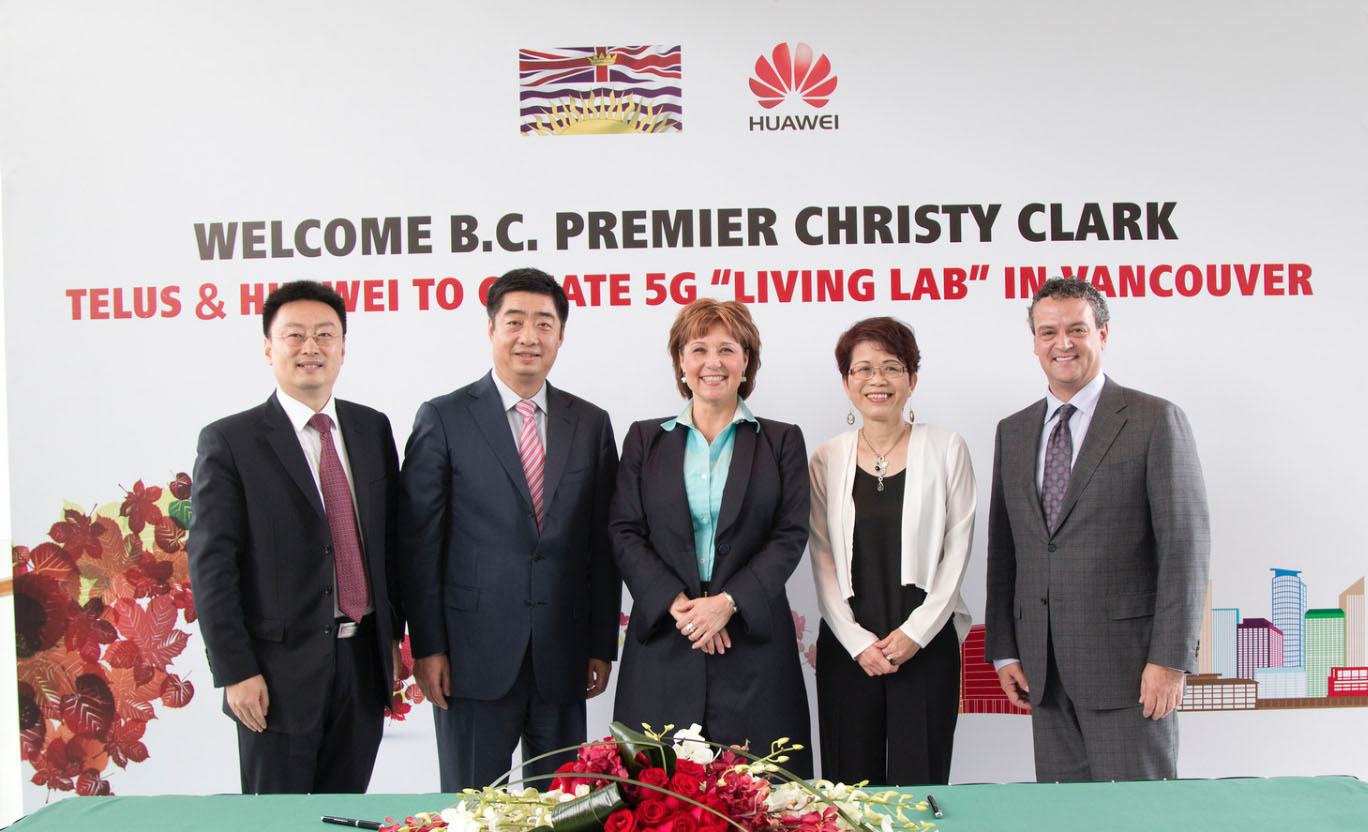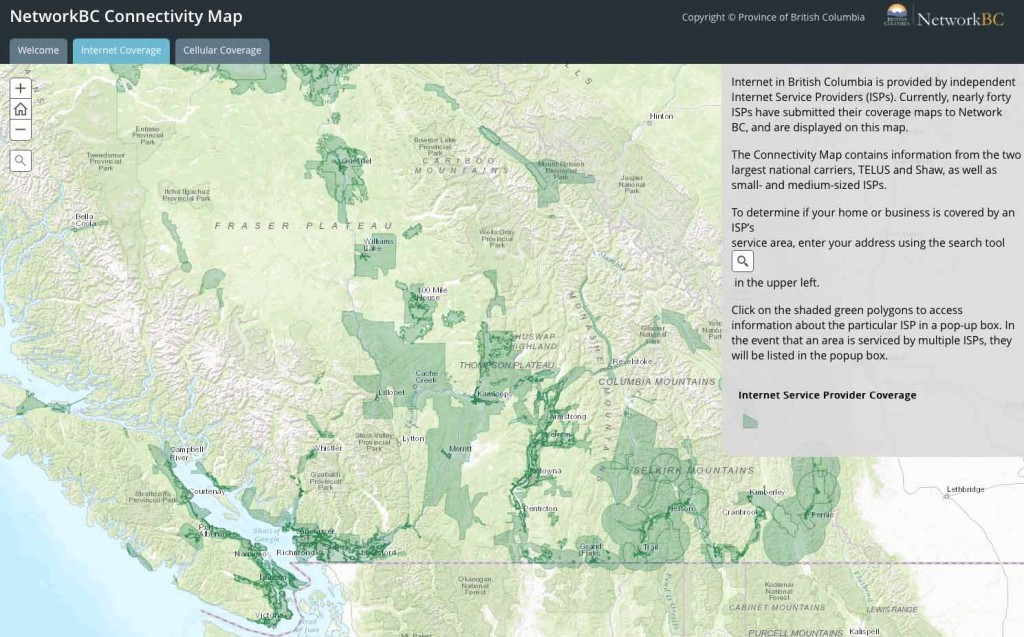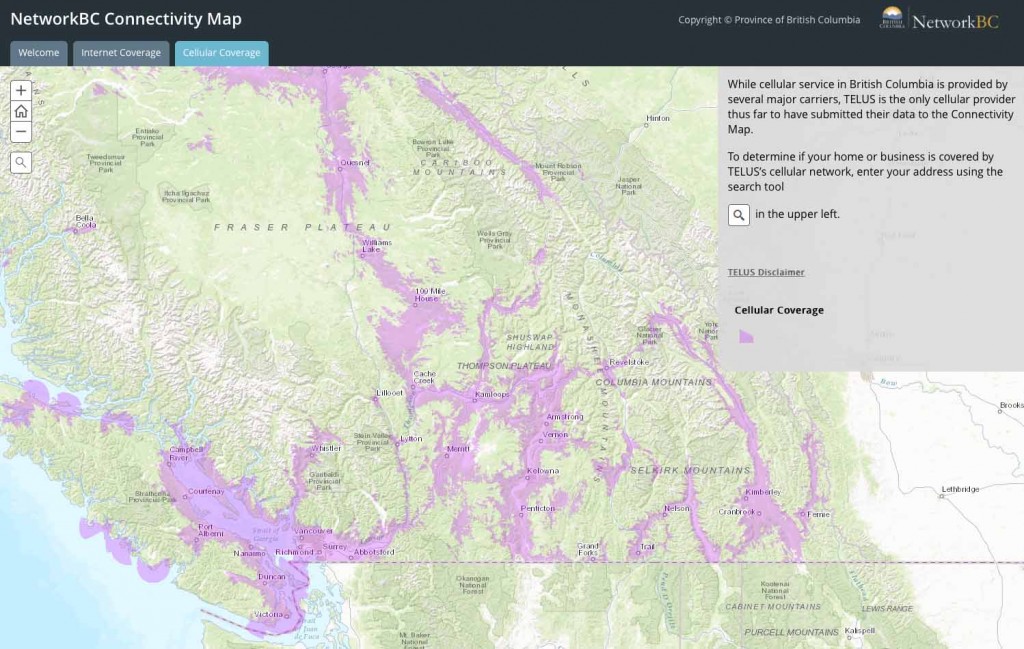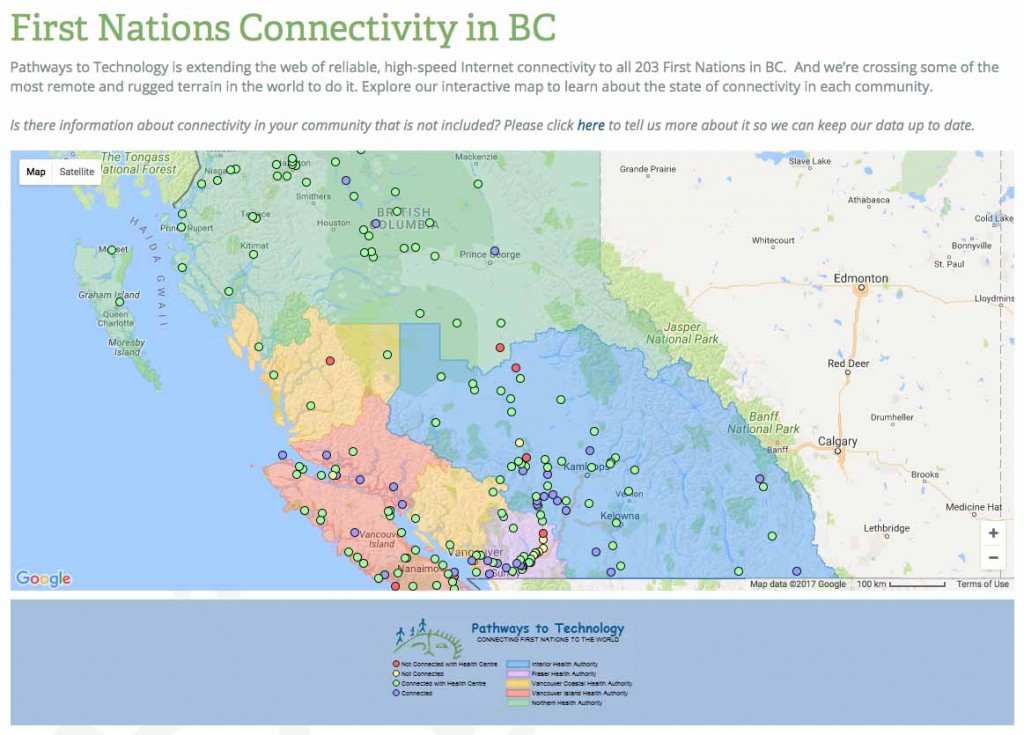
After seeing the Small Cells move across British Columbia, one has to wonder how it happened.
It began as a communication initiative to connect BC, but it did not say it had to be wireless.
UBCM – Union of British Columbia Municipalities Convention
Resolutions of the 2013 – page 87
” BC is one of the most connected jurisdictions in the world. Currently 93 percent of British Columbians have access to broadband or high-speed Internet service. The 10 year Connecting British Columbia Agreement signed in July, 2011, with TELUS includes a commitment to expand broadband service coverage in BC that will reach 97 percent. The remaining three percent will be reached through other means, including partnerships with local community Internet service providers, local governments and new programs such as a new broadband satellite initiative to be launched later in 2013. “
We are proud to announce that following a three-year negotiated request for proposals process, the Government of B.C. has awarded TELUS a 10-year telecommunications services contract. This contract, signed July 29, 2011, provides telecommunications and strategic services to government and its broader public sector partners.
Services included in the agreement are long distance, conferencing, voice, data, cellular and strategic services. The customers represented are the core ministries of the government, the six B.C. health authorities, BC Hydro, WorkSafeBC, the Insurance Corporation of BC and BC Lottery Corporation.
Expanding connectivity to B.C. citizens
Specific highlights of the new Connecting B.C. Program include:
- Upgrading approximately 450 schools to high-speed fibre optic cables.
- Providing more than 1,700 kilometres of additional cellular coverage along primary and secondary highway segments throughout B.C.
- Increasing internet bandwidth connections for designated rural and remote communities.
See Partnership Details for more information about the program.
http://about.telus.com/community/english/about_us/for_our_customers/connecting_bc_program
High-speed Internet access in rural areas is crucial for the future of our young people and their education; the health of families; and for the health of our economy. TELUS has signed a 10-year strategic telecommunications agreement with the Government of BC, out of which citizens and businesses in rural and remote areas will see numerous telecommunications benefits.
The agreement, signed on July 29, 2011, will expand access to Internet services in rural and remote areas and expand access to cellular services along segments of provincial highways. The Connecting British Columbia Agreement (CBCA) builds on the success of the previous Connecting Communities Agreement (CCA), under which TELUS upgraded, or provided Internet access to many communities for the first time, at no cost to government.
Under the new agreement, TELUS will provide the following rural benefits:
- Maintain Internet gateways or points-of-presence in 119 central offices throughout the province.
- Offer affordable wholesale Internet access for regional and local service providers, so they can continue to provide local coverage for rural and remote British Columbians.
- Increase Internet speeds up to ten-fold in many areas connected under a previous agreement between the Province and TELUS. Increased Internet speeds assist regional and local Internet service providers to offer quality Internet experiences to business, schools and citizens.
- Work toward the goal to increase the current level of connectivity in the province from 93 per cent to 97 per cent through various programs and commitments such as the Deferral Account program managed by TELUS.
- Work with the Province and other partners on strategies to address the connectivity needs of the remaining three per cent of citizens who live in very remote areas that cannot be served by land-based systems.
- Improve access to cellular services by installing more than 1,700 kilometres of new cellular services along sections of primary and secondary highways. As more than half of all 911 calls are currently made from cell phones, this expansion is a vital step forward for public safety.
In addition to connecting communities, this agreement will result in operational efficiencies, streamlined service delivery and the creation of new services, saving the government, and British Columbians, time and money.
For more information visit the Network BC Website.
Internet in BC
British Columbia engages with different levels of government, the private sector, and various organizations to encourage the expansion of high-speed Internet access.
What We Do
Currently, high-speed Internet services are available to 95% of British Columbian households. British Columbia has a goal of 100% of residents having access to high-speed Internet services by the end of 2021. View the Network BC Connectivity Map.
British Columbia coordinates efforts with:
Federal, provincial, local governments, and First Nations
Non-governmental organizations
Communities
Telecommunication service providers
There are a number of unserved and underserved households across the province. These areas are primarily on the outskirts of connected communities or in rural or remote areas where populations are small or dispersed, making access to Internet services expensive and challenging.
Network BC, a unit within the B.C. government, facilitates communication between communities and telecommunications service providers, as well as administers several agreements and programs to expand connectivity in the province. As telecommunications are regulated federally in Canada, the B.C. government cannot direct private companies where to make investments.
If you are interested in what connectivity options are available to you, we would encourage you to reach out to your local Internet service provider. There are nearly 200 Internet service providers operating across the province.
Fast, reliable Internet service means:
Better access to provincial programs and services
Improved quality of life for remote communities
Support for local economic development
High-speed access for schools, libraries and healthcare facilities
Below are a few resources that may help in building a plan that will work for connecting your community.
Research the connectivity initiatives already taking place in your community through local government, regional districts, and local Internet service providers
High-speed Internet connectivity programs
Network BC Connectivity Map
BC Broadband Satellite Initiative
Collaboration & Programs
As telecommunications is regulated federally in Canada, British Columbia takes a collaborative approach to reaching its goal of access to high-speed Internet services for 100 per cent of B.C. residents by 2021, through agreements and programs, and working with a variety of stakeholders.
Connecting BC Agreement
The Connecting British Columbia Agreement (CBCA) is a non-monetary agreement signed in 2011 between the B.C. government and TELUS to expand high-speed Internet services and highway cellular coverage. Through the CBCA, TELUS will connect more than 1700 km of highways with cellular service to enhance public safety, will maintain Internet connections (“Points of Presence”) in 119 communities, and provide access to Internet backhaul at reduced pricing for local Internet service providers in these 119 communities.
Expanded cellular coverage on highways
We understand the importance of cellular connectivity for public safety. Through the Connecting BC Agreement between the B.C. government and TELUS, TELUS will connect over 1700km of primary and secondary highways in B.C.
Where cellular carriers expand coverage is a function of transport, geography and other determinants of the investment needed and is at the company’s discretion. Improving the quality of cell reception may require new infrastructure which may be very costly. Cellular providers often have no business case to pay for this infrastructure. In the case that a community is looking to expand cellular coverage, they may be able to enter into cost-sharing agreements with the carriers to help improve the business case for expanded services. If this is of interest, Network BC can facilitate dialogue between communities and the cellular carriers.
- Learn more about B.C.’s cellular coverage
BC Broadband Satellite Initiative
For those locations in B.C. that are not served by terrestrial-based technologies, the BC Broadband Satellite Initiative helps to make the installation of satellite services through Xplornet more affordable.
- Learn more about the BC Broadband Satellite Initiative
First Nations connectivity and capacity building
Connecting all 203 First Nations using broadband technology is a priority for First Nations leadership and the B.C. government. Together we’re working to improve connectivity to communities that either have little or no Internet access. Federal and provincial governments have granted $55 million to the All Nations Trust Company to connect all 203 First Nations with an Internet connection through the Pathways to Technology project.
- Learn more about Pathways to Technology
Working with local government to expand connectivity
Last mile delivery of Internet services is often provided by small Internet service providers (ISPs) working in conjunction with various grant programs. To learn about potential plans to expand high-speed Internet services, we recommend working with your local ISPs to see if they will extend or improve coverage. Local government may also have plans to support the expansion of high-speed Internet services or to support applications for funding to expand services.
Sometimes it is difficult for an ISP to make a business case for extending coverage. In this case, cost sharing arrangements might make it viable with various funding partners. If there is an identified gap in coverage and the local government and ISPs have been engaged, Network BC may be able to facilitate next steps.
Funding to expand high-speed Internet services
The Connecting BC Program is providing up to $10M in funding for last mile infrastructure for small Internet service providers operating throughout B.C. The funding helps to pay for infrastructure required to deliver high-speed Internet connectivity at speeds to at least 5 Mbps down and 1 Mbps up in rural and remote locales of British Columbia. The fund is administered through the Northern Development Initiative Trust and funding is awarded on a rolling basis.
- Learn more about the Connecting BC Program
Federal telecommunications regulation
The federal government, through the Canadian Radio-Television and Telecommunications Commission (CRTC), holds regulatory authority over the telecommunications industry. They often consult with their stakeholders on policies and regulatory changes.
- Learn more about the CRTC
Previous Programs
Network BC is always looking for opportunities to start new programs and initiatives in order to meet the specific needs of different areas. Some of the programs that have run over the past few years include:
- Connecting Citizens Grant Program (2008-2011)
- Community Network Infrastructure Grant Program (2005-2006)
These programs helped to improve local infrastructure and brought high-speed Internet to over 200 locations throughout B.C. Funding was also used to reduce the cost of Internet access for local Internet service providers to expand coverage in remote areas.





